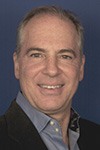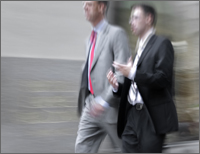 |
 |
 |
 |
 |
|
Webinar
Basis of Influence 1: Leadership, Trust, and Automatic Influence
Jun 18, 2020
9:30 am - 11:30 am Central Time Zone Use calculator to show CLE credit for your state.
As lawyers we try to influence people in every aspect of our professional life, whether we are negotiating a case, developing clients, or just trying to get a staff member to improve work performance. This five-part series investigates the foundations of influence and the factors that result in increased success and cooperation . These short courses build on sections from our highly regarded courses "The Trusted Lawyer" and "The Persuasive Lawyer." (The Basis of Influence Series covers additional new material, but there is some overlap and review.) Each short course stands alone, so you can can one or take them all! Part 1: Leadership, Trust, and The 9 Techniques of Automatic Influence(120 minutes) Techniques of "automatic influence" are built into the fabric of what makes us human, and give the ability to persuade without the appearance of influence. Lawyers use and are influenced by them, sometimes without even realizing it. This course explores the factors that affect every attorney’s ability to lead and persuade, including the role of “perceived” trust, and what scholars have identified as the 9 Techniques of Automatic Influence.
(120 minutes) At the heart of every lawyer’s success is the ability to elicit support from others. More than 2,000 years ago Aristotle discussed this as being dependent on the ability to evoke the right attitude or emotion in the other person. This section explores how to inspire others to want to support your objectives.
(90 minutes) Master the art of listening, and you will encourage clients and other lawyers toward full disclosure of accurate information. This program helps you discover how a learning conversation can reveal important new facts, and increase your successes as a lawyer.
(150 minutes) If you've ever found yourself on the (losing) end of explaining what you really meant, you know how damaging negative misinterpretations can be. Attorneys will learn simple ways to improve communication, build rapport, and match intentions to delivery.
(120 minutes) In this program, lawyers look at how breakdowns in communication, effectiveness, and health can be caused by intense work demands and stress. Lawyers learn the neurophysiology of stress, together with simple techniques to reduce anxiety and regain clarity.
|
PRICE: $99.00
|
|||||||||||||||
|
Note:All Teleconference/webinar times are shown as Central
 Brian HammerBrian Hammer, M.A., J.D., is the founder and a facilitator for The Likeable Lawyer. Brian practiced law for over ten years before starting The Likeable Lawyer in 2003, and has designed and delivered thousands of highly-praised programs to law firms, corporations and organizations nationwide. He is a frequent speaker at bar conventions, law firm events and other professional association meetings. Brian is a graduate of the University of Texas School of Law, the University of North Carolina School of Business, and holds a Masters of Psychology degree from the University of Santa Monica.
Date: 06/18/2020 For information on how to connect, check the FAQ. Credit ReportingOur courses are approved in almost all states that have CLE requirements. Accreditation for a particular course will vary by state. Please use our CLE calculator for CLE credit available in your state. For more information, visit our FAQ. |
||||||||||||||||

Patterson Ehrhardt, PLLC
Norris, McLaughlin & Marcus
Hensel Phelps Construction Co.
Jones Day
Manley Deas Kochaiski